Saturday September-13 2025 17:29:08
Soil sieve price vary widely, ranging from $3 to $500. Small, handheld garden sieves are generally cheaper due to their simple design and common materials. Standard vibrating screens used in industrial applications or on construction sites are significantly more expensive. Small manual soil sieves process 50-100 kg per hour and are suitable for laboratories. Large electric soil sieves can process 500-2000 kg per hour, meeting the needs of large-scale engineering and agricultural applications. Stainless steel and nylon are commonly used. The former is hard and rust-resistant, suitable for acidic, alkaline, and highly abrasive soils. The latter is lightweight and provides stable screening accuracy. Sieve sieves typically have 3-5 layers, and the mesh size ranges from large to small, such as 5mm, 2mm, 0.15mm, and 0.075mm, from the top mesh to the bottom mesh.
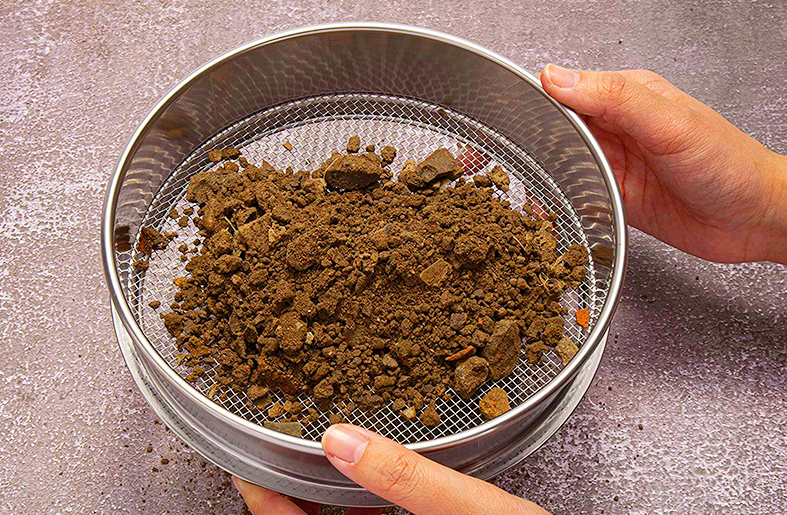
A soil sieve is a tool used to separate and screen materials such as soil, sand, and fertilizer. It comes in different types depending on its application and the required precision. These types of soil sieves vary significantly in price. Gardening soil sieves are typically handheld or small-sized, with larger mesh sizes. They are primarily used for coarse screening in home gardens and small farms to separate debris such as rocks and roots, and are relatively affordable. Standard soil sieves, used in building and construction, are typically made of stronger materials and have more precise mesh sizes to meet project quality requirements. These sieves come in a variety of sizes and can be customized. Laboratory test sieves are high-precision models with precise mesh sizes and are used for scientific research and quality control in areas such as soil mechanics and geological analysis.
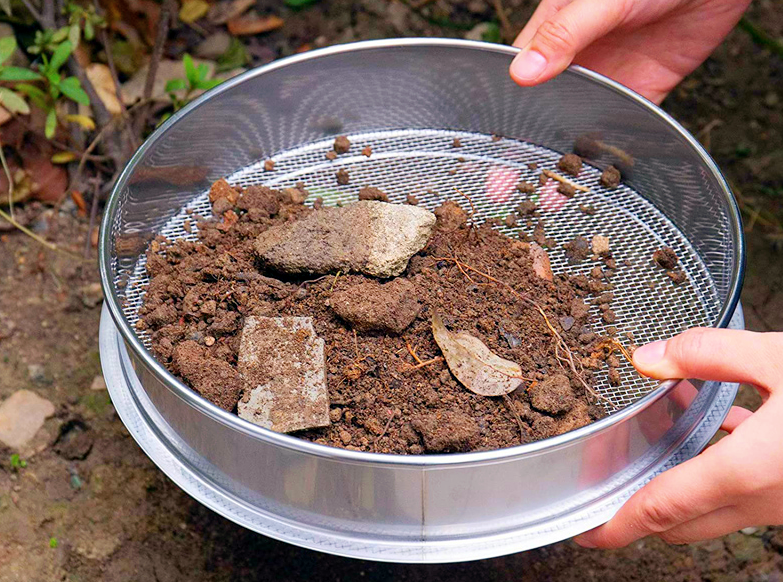
Horticultural soil sieve price are relatively inexpensive and lightweight. These sieves are usually used in home gardening to sieve soil, compost or pebbles to obtain finer soil. Most of them are made of simple metal and small in size (about 20-40 cm in diameter). The mesh size may be fixed or have a replaceable screen.
|
Sieve specifications |
material |
diameter |
common aperture |
reference price (USD/piece) |
|
Standard test sieve |
stainless steel |
200mm |
0.075–10mm |
$3–$8 |
|
Thickened frame sieve |
stainless steel/copper frame |
300mm |
1mm–20mm |
$6–$12 |
|
Teaching/general purpose sieve |
metal+steel mesh |
200–300mm |
2–5mm for coarse sieve |
$5–$10 |
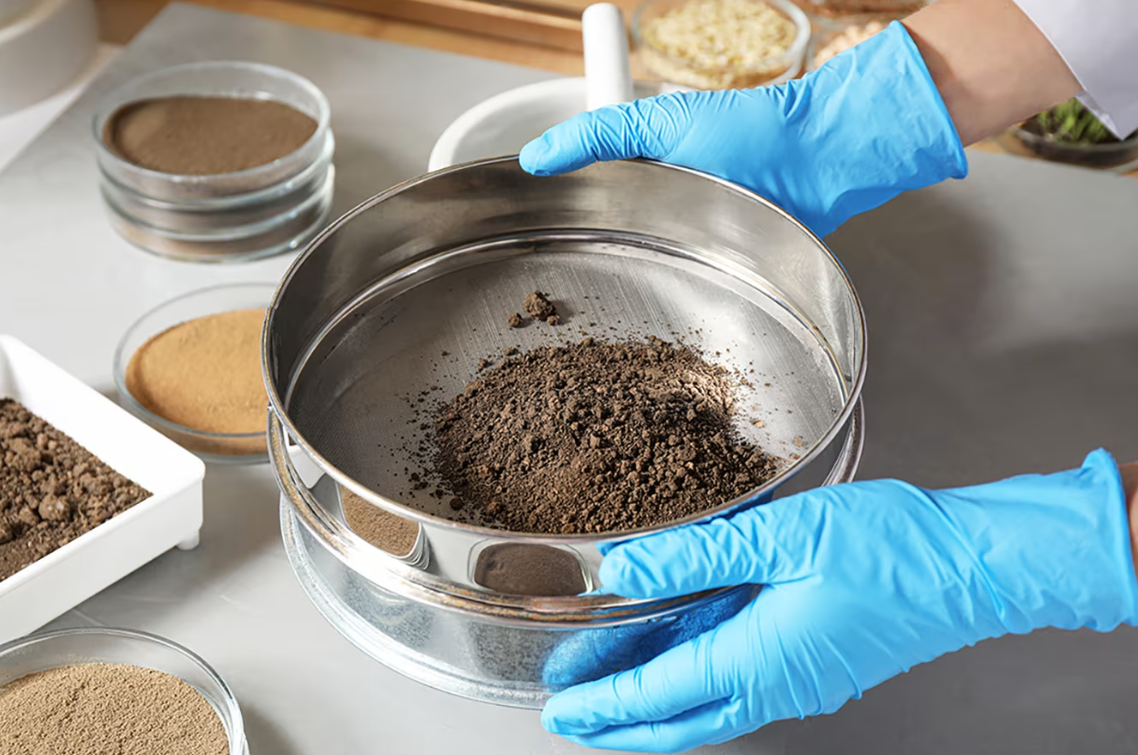
Standard soil sieve price are more expensive. This type of sieve is used in civil engineering, geological analysis, agricultural research and other fields. It has strict requirements on the accuracy and consistency of screening and usually needs to comply with international standards such as ASTM and ISO. Precision manufacturing, mostly made of stainless steel or brass, with strict sieve size standards (such as 0.075mm, 0.2mm, 0.425mm, 2mm, etc.), usually with a diameter of 200mm or 300mm.
Complete set of sieves (excluding vibrating screen machine): usually a series of standard sieves with different mesh sizes, arranged from coarse to fine, equipped with a sieve cover and bottom plate, used to gradually screen soil samples to analyze particle size distribution.
|
Set type |
Number of layers |
Common aperture (mm) |
Reference price (USD/set) |
|
200mm standard set |
8 layers |
0.075–10mm (including bottom cover) |
$40–$80 |
|
300mm teaching sieve set |
10 layers |
customized |
$60–$100 |
|
Complete set of sieves for geotechnical screening |
12 layers |
0.075–20mm |
$80–$150 |
Laboratory soil sieve price are also relatively expensive. The complete set of equipment here usually refers to a complete system including a vibrating screen machine and a set of standard test sieves. The vibrating screen machine uses mechanical vibration to help soil samples pass through the sieve more effectively, ensuring the accuracy and repeatability of the screening results.
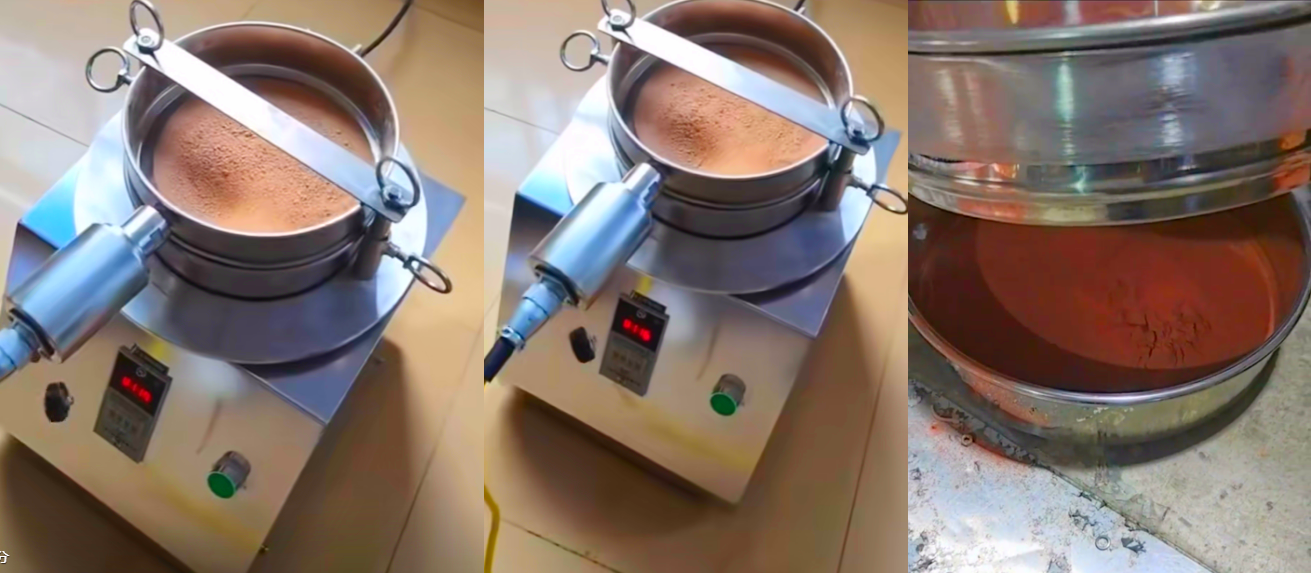
Vibrating sieve machine: There are many types such as mechanical and electromagnetic, and the vibration frequency, amplitude and screening time can be set, which is suitable for various dry and wet samples.
Matching sieve: It is usually sold with the vibrating sieve machine, or the user can purchase a standard sieve separately according to needs.
Vibrating sieve machine type and brand: The functions, performance and prices of vibrating sieve machines of different brands and models vary greatly.
Number and material of sieves: The more the number of matching sieves, the higher the precision, and the better the material (such as stainless steel), the higher the price.

|
Equipment type |
Number of sieves |
Supported sieve diameter |
Functional features |
Reference price (USD/unit) |
|
Electric test sieve (basic model) |
1–8 layers |
200/300mm |
Mechanical vibration, timing |
$260–$480 |
|
Digital display control test sieve |
1–9 layers |
200–400mm |
Digital display timing/speed control |
$500–$850 |
|
High-precision automatic sieving instrument |
1–10 layers |
200–450mm |
Program control, variable frequency vibration |
$900–$1600+ |

Soil sieve material is a key factor affecting Soil sieve price. Common materials include plastic and stainless steel, and their respective characteristics determine their applicability and cost differences. Below is a detailed introduction to the two materials:
Plastic soil sieves are inexpensive to manufacture and suitable for home or small-scale gardening. Plastic is lightweight, easy to carry and operate. Plastic also offers excellent chemical resistance, including resistance to water, moisture, and some mild acids and bases, making it less susceptible to rust. They are also inexpensive, making them a practical choice for simple gardening, compost screening, or small-scale soil processing needs on a budget.
Stainless steel's advantages include excellent corrosion resistance, moisture resistance, and chemical resistance, making it suitable for environments with humid or corrosive materials. Its smooth, easy-to-clean surface prevents contamination, making it an ideal choice for industries with high hygiene requirements, such as the food and fine chemical industries. Stainless steel soil sieves offer a clean appearance and are suitable for demanding environments. However, their price is generally higher than that of plastic soil sieves, depending on the type of stainless steel and the size of the equipment. For applications handling corrosive materials or with strict hygiene requirements, stainless steel offers a more reliable and long-term option.
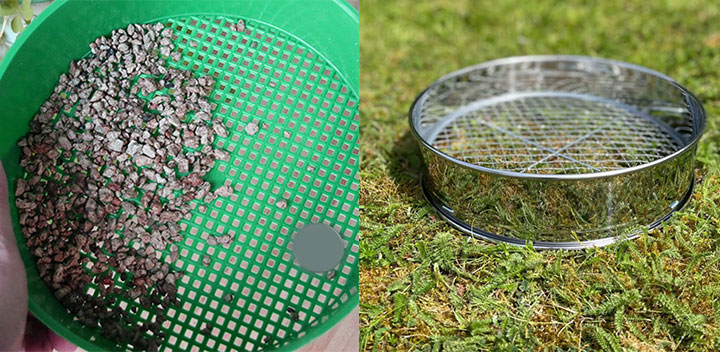
Our company has many years of production and R&D experience, boasting a 10,000-square-meter factory and comprehensive equipment. As a leading manufacturer, we offer competitive prices on soil sieves. Our soil sieves meet national standards and are suitable for a variety of soil textures, from coarse to fine. We can also customize the sieves with various materials, including iron and copper mesh.
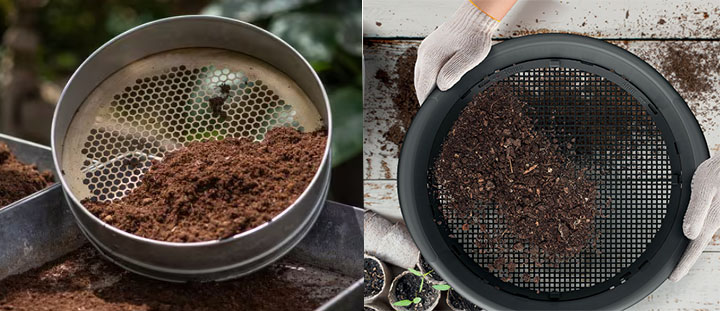
When choosing a soil sieve, the most important thing is to clarify your purpose and accuracy requirements. If you are just doing simple gardening activities, a gardening sieve of a few dozen Singapore dollars is enough; but if it is used for professional laboratory analysis, you need to invest more and buy a single sieve or a complete set of test sieve equipment that meets the standards. It is recommended that you choose the appropriate specifications and materials according to your specific needs, and get a better purchasing experience by comparing the prices and services of different merchants.
What is the wet sieving process?
Wet sieving process is a sieving process assisted by a liquid (usually water or a solution containing a dispersant) to more effectively...
Fines content tester can be defined as an instrument used to quantitatively determine the content of fines powder components of a specific fineness...
Micro silica powder particle size analysis test sieve
Micro silica powder, also known as silica fume, is an ultrafine active silica material with a very small particle size, usually between 0.1-0.3 microns, which...
Stainless steel frame and woven cloth
The test sieve is a laboratory equipment used for particle size analysis. Its core components usually include a stainless steel frame and woven cloth (also called a sieve)...
Sep 13, 2025
Soil sieves range in price from $3 to $500.This device separates materials such as soil, sand, and co...
Sep 09, 2025
Environmental soil sieve Common sieve sizes for environmental soil sieve include: coarse sieve 4.75mm...
Sep 06, 2025
Construction soil sieve can separate particles of different sizes in the soil, detect soil particle g...
Sep 02, 2025
Agricultural soil testing sieve
Agricultural soil testing sieve uses a 2mm sieve to separate the fine particles in the soil in order ...
![]()
Then we look forward to hearing from you
Contact Us
Industrials
Yanjin county forest park gate to the west 1000 meters north road sitemap
